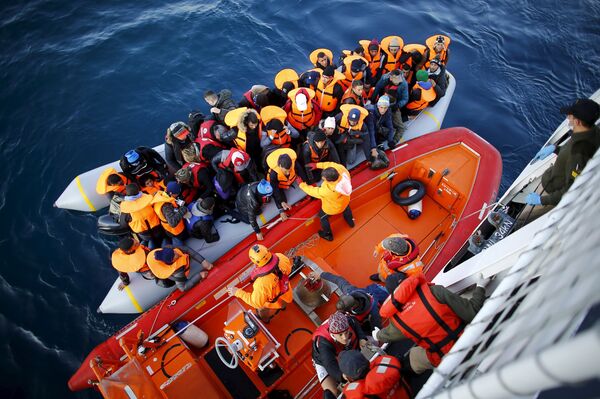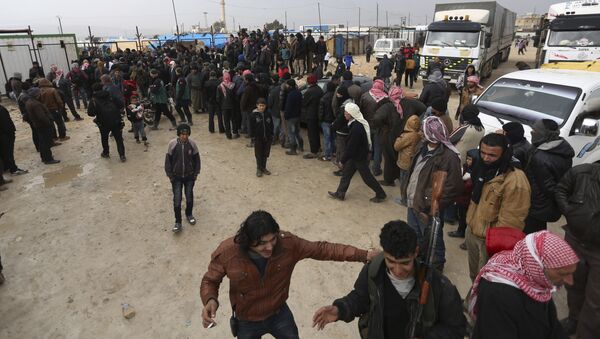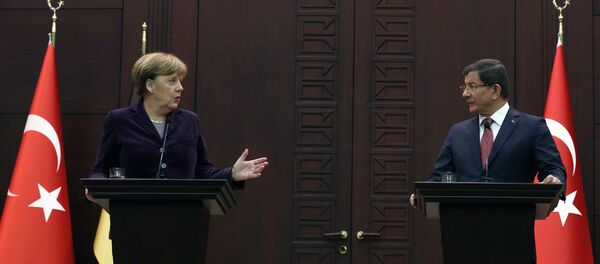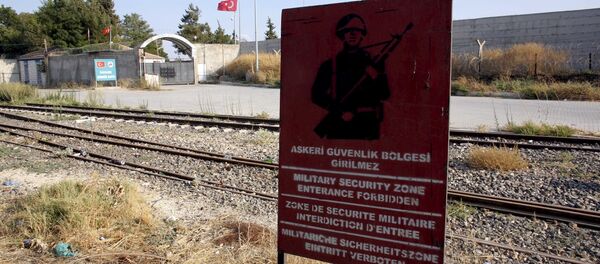His remarks came after Turkish Prime Minister Ahmet Davutoglu announced that Ankara and Berlin plan to discuss the possibility of NATO monitoring Turkey's borders, both on land and at sea, during the alliance's ministerial meeting on Thursday.

"NATO can only be engaged in observation activities, and the alliance stopping and inspect vessels with migrants is out of the question. The alliance has no powers to perform police functions, such as the detention or arrest of smugglers involved in the transportation of illegal migrants," Pamir said.
At the same time, he added that the very fact that such an initiative was being discussed in the framework of NATO's ministerial meeting is of great importance because it will help draw more attention to the problem.
The #NATO to patrol NATO-member #Turkey so that it won't be sending boats with refugees & migrants to #EU. #Surrealism
— Keep Talking Greece (@keeptalkingGR) 9 февраля 2016
"Illegal migration is an issue that endangers security and stability in many NATO countries where right-wing nationalist parties continue to boost their clout. In this regard, the forthcoming discussion is seen as a rather significant step," he pointed out.
Pamir also said that it is still unclear whether NATO members will approve the joint initiative, which he said may be blocked by some NATO countries.
"These countries may urge Turkey, Greece and the US to establish more active interaction with each other in the region without NATO's participation," he said.
Earlier, EU leaders agreed to send 3.3 billion dollars in aid to the Turkish government to help provide humanitarian assistance and tackle the refugee crisis in the country.
According to a February 9, 2016 UNHCR press release, "Turkey is already hosting over 2.5 million Syrians and shouldering the greatest responsibility in sheer numbers in this humanitarian international crisis." However, the UN agency states on its website that as of December 2015, 6.5 million Syrians were internally displaced. Additionally, the UN claims more than 1.8 million Syrians currently reside in Lebanon, a country of less than 4.5 million people.




